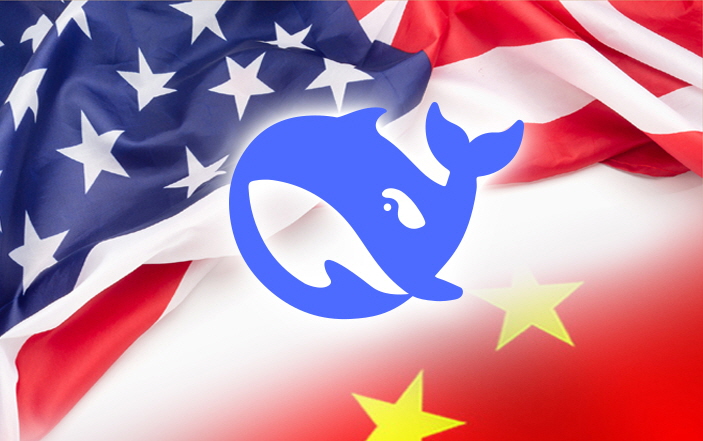AI 기술은 오늘날 세계 경제와 국가 안보를 좌우할 만큼 중요한 분야로 자리 잡았습니다. 그런데 최근 OpenAI가 트럼프 행정부에 중국 기반 AI 모델 DeepSeek의 금지를 요청한 정책 제안을 제출하면서, 미국 AI 산업의 미래를 둘러싼 논쟁이 뜨겁게 달아오르고 있습니다. 이 제안은 미국이 AI 분야에서 중국에 뒤처지지 않도록 보호하려는 의도로 보이지만, 그 이면에는 다양한 찬반 의견이 얽혀 있습니다.
🚫 OpenAI의 DeepSeek 금지 요청: 왜 이런 제안을 했을까?
OpenAI는 중국 기반 모델 DeepSeek이 미국의 기술 우위를 위협하고 있다고 주장하며, 이를 금지해야 한다는 강력한 입장을 표명했습니다. 특히 DeepSeek가 개인정보 보호 및 보안 위험을 초래할 가능성이 있다는 점을 강조했죠. 트럼프 대통령의 발언을 인용하며, 미국의 글로벌 우위를 유지하기 위해 이러한 조치가 필요하다는 점도 부각했습니다.
하지만 여기서 흥미로운 점은 DeepSeek 모델이 Microsoft, Amazon, Perplexity 등 여러 미국 회사에 의해 호스팅되고 있다는 사실입니다. 이들 기업은 검열을 제거하고 독립적으로 모델을 운영할 수 있는 능력을 갖추고 있죠. 그러나 OpenAI는 보고서에서 이러한 구체적인 사항을 언급하지 않아 사용자들 사이에서 혼란과 비판이 일었습니다.
OpenAI calls for U.S. DeepSeek ban
OpenAI가 트럼프 행정부에 **DeepSeek 금지**를 요청하는 정책 제안을 했습니다. 이 제안은 미국이 AI 분야에서 중국에 뒤쳐지지 않도록 보호하려는 의도로 보입니다. OpenAI는 DeepSeek와 같은 중국 기반
lilys.ai
🛡️ AI 기업들의 요구: 규제 완화와 저작권 문제
OpenAI뿐만 아니라 Google 같은 거대 기술 기업들도 저작권 자료를 더 쉽게 학습할 수 있도록 규제를 완화해 달라는 요청을 하고 있습니다. 이들은 AI 경쟁을 고위험 무기 경쟁에 비유하며, 미국 정부가 더 유연한 정책을 취해야 한다고 주장합니다.
그러나 이러한 요구는 현재 진행 중인 소송과 맞물려 논란을 일으키고 있습니다. 예를 들어, FTC는 Amazon에 대한 소송을 계속 진행 중이며, 법무부는 Google의 분리를 원하고 있는 상황입니다. 규제 완화 요구가 과연 정당한지에 대한 의문이 제기되는 이유죠.
🌐 혁신 vs 보호주의: 업계의 갈등
미국 AI 산업이 특혜와 보호를 필요로 하지 않는다는 의견도 만만치 않습니다. 일부 관계자들은 "아웃빌드(더 뛰어난 제품 개발), 아웃로우(더 나은 법적 전략), 아웃이노베이트(더 혁신적인 기술)"를 통해 경쟁력을 강화해야 한다고 주장합니다. 즉, 보호주의적 접근보다 자유로운 경쟁과 혁신이 더 중요하다는 입장이죠.
OpenAI의 정책 제안에 대한 반발도 이어지고 있습니다. 사용자들은 OpenAI와 CEO Sam Altman이 혁신에서 뒤처지고 있으며, 이를 정책으로 만회하려 한다고 비판합니다. 지나친 보호주의가 오히려 경쟁과 발전을 저해할 수 있다는 우려도 나오고 있습니다.
결론: 미국 AI 산업은 어떤 길을 선택해야 할까?
OpenAI의 DeepSeek 금지 요청은 단순한 정책 제안을 넘어 미국 AI 산업의 방향성을 둘러싼 중요한 논쟁을 보여줍니다. 글로벌 경쟁에서 우위를 유지하기 위해 보호주의적 접근이 필요한 것일까요? 아니면 자유로운 경쟁과 혁신만이 진정한 해답일까요?
여러분은 어떻게 생각하시나요? 미국 정부가 AI 산업에서 어떤 역할을 해야 한다고 보시나요? 자유로운 혁신과 경쟁을 지지하시나요, 아니면 전략적 보호 조치를 선호하시나요? 댓글로 여러분의 생각을 공유해 주세요!
#AI경쟁 #OpenAI #DeepSeek #트럼프행정부 #기술규제 #중국기술 #저작권논란 #혁신 #보호주의 #글로벌경쟁 #미국정부

The Global AI Race: OpenAI's Proposal to Ban DeepSeek and the Controversy Surrounding It
Artificial intelligence has become a cornerstone of global economic and national security strategies. Recently, OpenAI submitted a policy proposal to the Trump administration, urging a ban on the Chinese-based AI model DeepSeek. This move is seen as an effort to ensure that the U.S. maintains its competitive edge in AI, but it has sparked significant debate over its implications for innovation and competition.
🚫 OpenAI's Push to Ban DeepSeek: What's Behind the Proposal?
OpenAI argues that DeepSeek poses a threat to U.S. technological dominance and should be banned due to potential risks to privacy and security. The proposal cites statements from former President Trump emphasizing the need to preserve and strengthen America’s global leadership.
Interestingly, DeepSeek is hosted by several U.S.-based companies, including Microsoft, Amazon, and Perplexity, which have the capability to operate these models independently while bypassing censorship. However, OpenAI’s report fails to acknowledge this distinction, leading to criticism and confusion among users.
🛡️ Tech Giants' Demands: Regulatory Relaxation and Copyright Issues
In addition to OpenAI, tech giants like Google are lobbying for relaxed regulations that would allow AI companies easier access to copyrighted materials for training purposes. They liken the AI race to a high-stakes arms race, urging the U.S. government to adopt more flexible policies.
However, these demands are controversial given ongoing legal battles. For instance, the FTC continues its lawsuit against Amazon, while the Department of Justice is pushing for Google’s breakup. This raises questions about whether such regulatory relaxation is justified.
🌐 Innovation vs Protectionism: A Divided Industry
Not everyone agrees with the need for protectionist measures in the U.S. AI industry. Some industry insiders advocate for an approach focused on "outbuilding (developing superior products), outlawing (better legal strategies), and out-innovating (creating groundbreaking technologies)." In their view, fostering open competition and innovation is more important than relying on protective policies.
OpenAI’s proposal has also faced backlash from users who argue that OpenAI and its CEO Sam Altman are falling behind in innovation and are trying to compensate through policy interventions. Critics warn that excessive protectionism could stifle competition and hinder progress.
Conclusion: Which Path Should the U.S. AI Industry Take?
OpenAI's call for a ban on DeepSeek highlights a broader debate about the direction of the U.S. AI industry. Should protectionist measures be prioritized to maintain global dominance? Or is fostering free competition and innovation the better path forward?
What do you think? Should the U.S. government play an active role in shielding its AI sector, or should it let innovation drive progress? Share your thoughts in the comments below!
#AICompetition #OpenAI #DeepSeek #TrumpAdministration #TechRegulation #ChineseTechnology #CopyrightDebate #Innovation #Protectionism #GlobalCompetition #USGovernment
'이슈' 카테고리의 다른 글
| 전라남도 구제역 확산: 현황과 대응 전략 (0) | 2025.03.17 |
|---|---|
| 9개월 만의 귀환! 우주에서의 긴 여정을 마무리하는 NASA 우주비행사들 (0) | 2025.03.17 |
| 촉망받던 야구 유망주의 충격적 몰락, 무엇이 그를 영구 퇴출로 이끌었나? (0) | 2025.03.16 |
| 한국이 미국 '민감 국가'로 지정된 이유와 파장: 무엇이 문제인가? (0) | 2025.03.16 |
| 상법 개정안 통과, 기업 경영의 새로운 시대 열릴까? 📈⚖️ (0) | 2025.03.16 |



